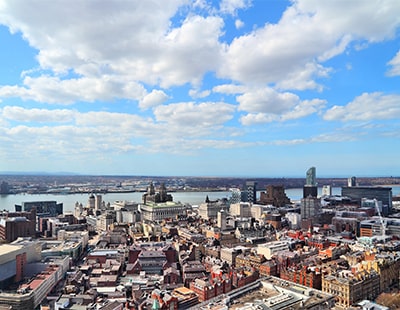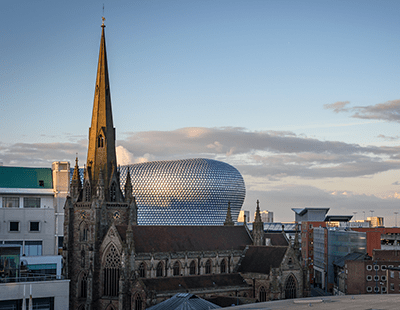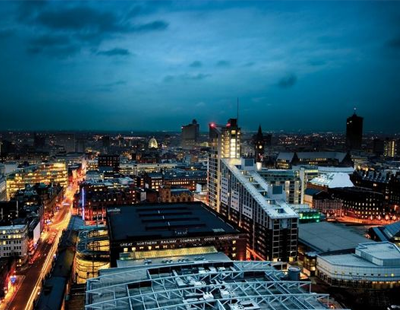The UK’s cultural hotspot
For example, just 190 miles northwest of the capital and straddled by the beautiful Pennine hills lies Manchester, an area with a rich industrial heritage, that is seeing unprecedented growth and economic activity. The city-region is only the fifth largest by population, but it is increasingly being referred to as the UK’s “second city”, thanks to its recently acquired image as Britain’s modern cultural capital.
The city’s roots are embedded in the textile manufacturing of the Industrial Revolution, but modern Manchester is the place for urban living with a slew of music venues, art houses, restaurants, and festivals. No wonder, then, that it has been named as one of the third best cities in the world according to global culture and events magazine Time Out, and one of the top three destinations in the UK for overseas tourists according to leading holiday website Hotels.com.
The world's first industrial city has moved on….
It’s not all about the bright lights of the city though. Look behind the curtain stage and you will find a powerful international business hub, with companies such as Unilever, Kellogg's, Siemens, Amazon, and Microsoft all having a presence here. Furthermore, professional services, finance, and banking have grown exponentially, which in turn has seen many professionals relocate to the area.
In fact, the Manchester economy is now bigger than that of Wales or Northern Ireland. It is no surprise then that research released by global real estate services firm Avison Young found its growth in 2021 was the second-highest of 30 major European cities, expanding by an impressive 8%.
At the heart of the North and the Northern Powerhouse
Manchester’s resilience in the face of the terrible economic impact of the coronavirus pandemic is a testament to its place as a key member of the Northern Powerhouse, a collection of connected northern cities that seek to emulate the economic success of London and the Southeast. The government’s focus on Manchester as a key means of rebalancing the UK economy has seen the area receive an £84 million investment to make trains more reliable, kicking off a decade’s worth of improvements across the region.
It has also been granted greater independence to decide its own future. Its elected has been given responsibilities that include a £300 million housing investment fund that is creating thousands of local jobs, quality homes, and commercial spaces for businesses.
So, about those property investment opportunities…
There is obviously huge investment, activity, and government support being poured into Manchester which forward-thinking investors should be taking advantage of while they can.
They should also keep in mind that house growth is at its fastest rate since 2007 according to Halifax, with the average house price across the country hitting £360k. This will leave many would-be landlords struggling to purchase suitable assets.
Not so in Greater Manchester, though, where properties across half of its boroughs can be bought for £150,000, according to data from the HM Land Registry. Unfortunately, cost of living increases has seen rising rents which have, in turn, increased the likelihood of defaulting tenants. Clearly, buying to let may not be a suitable option at this time for those looking for a hassle-free investment.
If you don’t want to be a landlord, take the Build to Rent (BTR) option.
For investors looking for good returns rather than hunting for renters who can pass referencing, there is always the option of Built to Rent (BTR). These are properties that are built, or redeveloped, specifically to be rented out rather than sold. Each development includes multiple units and a single company rather than individual landlords managing all the properties. The company manages and maintains the development to ensure it is secure, stable, and attractive to renters.
The BTR market is relatively new in the UK, but such is the popularity of the model that investors poured £4.1bn into BTR last year according to property advisory CBRE. In fact, a recently published analysis by the British Property Federation (BPF) demonstrates the BTR sector’s rapid expansion with 46,304 build-to-rent homes under construction at the end of the first quarter, which is up 14% year on year. This led the BPF to state that “Long-term demand for rental homes means the sector’s prospects remain very positive”. Manchester has embraced BTR wholeheartedly and there are many schemes for investors to get involved in such areas as the City Centre, Salford Quays and MediaCity.
Future Manchester. An economy built on people, place, and prosperity
The case for property investment in Manchester couldn’t be stronger. Its star continues to rise, propelled by a new economy and exciting cultural experiences that is attractive to a professional, middle-class workforce. In order to maintain this growth it needs to ensure a steady housing supply and is eagerly welcoming both investors and developers with open arms.
With so many developments underway, there are many opportunities to be considered and enjoyed. That being said, the word is already out, and many investors should be aiming to make their mark there sooner rather than later.
*Reece Mennie is the chief executive officer of property developers HJ Collection









.png)










Join the conversation
Be the first to comment (please use the comment box below)
Please login to comment